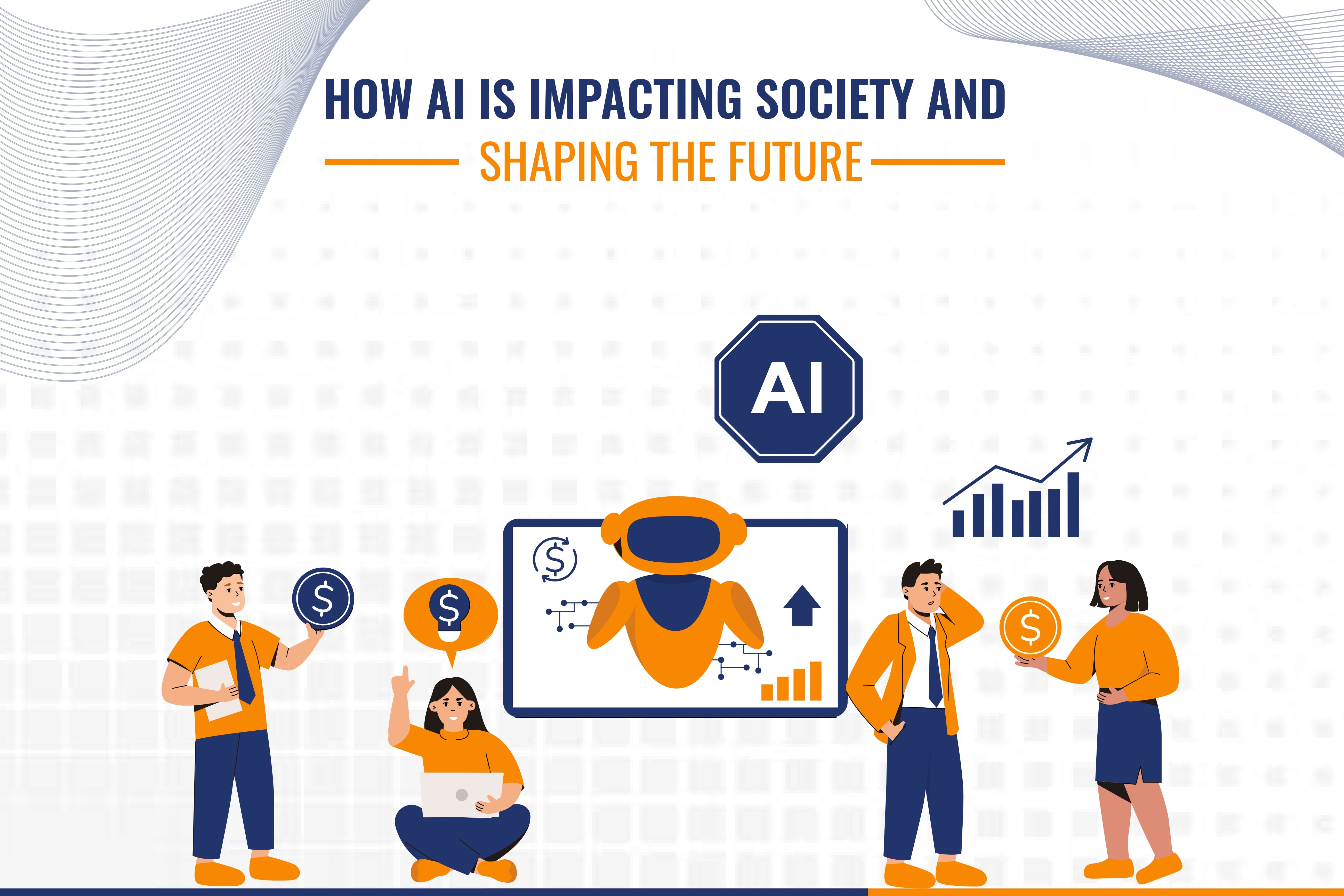
How AI is Impacting Society and Shaping the Future?
AI has become a powerful force that is changing society in many ways while creating new opportunities. AI has a wide-ranging and significant impact on industry and daily life. With an emphasis on technical program management training and a lot more, let's walk through the many ways AI is influencing our society and outline its potential future impacts.
Understanding AI as a Primer
Prior to exploring how AI will affect society, it is critical to comprehend what AI entails. AI is the term for machines that simulate human cognitive functions as learning, reasoning, and self-correction.
Subfields of artificial intelligence called machine learning (ML) and deep learning (DL) allow systems to learn from data and make predictions or judgments on their own. These technologies serve as the foundation for many AI applications, including self-driving cars and virtual assistants and employing technical training development will in furthering the progress.
Transforming Operations and Efficiency with AI in Industries
The way AI is transforming industries is one of its most prominent impacts. It is transforming industries including healthcare, banking, manufacturing, and transportation by boosting productivity. AI-powered diagnostic tools help medical professionals diagnose diseases accurately and create individualized treatment regimens. Financial organizations use AI algorithms for algorithmic trading, risk assessment, and fraud detection. Like this, AI-enabled robots in manufacturing improve quality control and expedite production operations.
Furthermore, AI has an impact that goes beyond operational effectiveness; by facilitating the creation of new goods and services, it promotes innovation. For example, AI is crucial for the development of autonomous vehicles in the automotive sector, which promises safer and more effective transportation networks.
Reskilling and Upskilling Imperatives
AI raises concerns about job displacement and skill obsolescence despite its promise of remarkable breakthroughs. Training and upskilling employees is becoming more and more necessary as AI automation makes some jobs obsolete so they can adjust to the changing nature of the workforce. Technical training development becomes essential to giving people the skills they need to succeed in AI-driven workplaces.
In this framework, the importance of Technical Program Management Training, which emphasizes upon the efficient administration of AI projects from start to finish, becomes apparent. Regarding resource allocation, risk management, and stakeholder communication, TPMT gives professionals project management abilities that are specific to AI initiatives.
In the same way, Technical Transformation Training helps firms manage the digital shifts brought about using AI. To ensure a seamless transition to AI-driven workflows while minimizing opposition and optimizing advantages, It equips professionals with the knowledge and abilities to lead organizational transformation projects.
The Role of Institutions and Education
Specialized programs and courses are being offered by educational institutions and training providers in response to the increasing demand for AI expertise. Both professionals wishing to advance their careers or move into AI-related professions and those intending to start their own business are catered to by these programs.
Furthermore, industry relationships are essential for bridging the knowledge gap between academia and business needs. The establishment of AI talent pipelines is made easier by cooperative efforts amongst academic institutions, businesses, and governmental organizations, guaranteeing a consistent supply of qualified workers to satisfy industry demands.
Ethical and Societal Implications of AI
As artificial intelligence begins to seep into many facets of society, ethical questions about privacy, bias, and accountability are brought up. Due to their reliance on vast amounts of data, AI algorithms have the potential to reinforce biases in the data and produce discriminatory results. The widespread application of AI in decision-making and monitoring also prompts concerns about people's privacy and autonomy.
A multidisciplinary strategy that considers ethical norms, industrial standards, and regulatory frameworks is needed to address these ethical issues. The goal of initiatives like the establishment of AI ethics boards and the inclusion of ethics courses in technical transformation training programs is to incorporate morality in the development and application of AI.
Additionally, to reduce biases and guarantee that AI systems serve a variety of user populations equally it is imperative that development teams for AI promote diversity and inclusion. Organizations can improve the ethical and societal effects of AI applications by encouraging a diversity of perspectives and experiences.
AI and Socioeconomic Dynamics
The widespread application of AI is changing socioeconomic dynamics by influencing opportunities, income distribution, and employment trends. Automation powered by AI can increase productivity and open fresh career possibilities, but it also worsens income inequality and fuels polarization in the workforce.
Furthermore, people in routine or low-skilled jobs have difficulties because of the digitalization of economies brought about by the adoption of AI. This calls for the implementation of comprehensive workforce transition policies and social safety nets along with Technical Program Management Training. To address these issues, initiatives like the universal basic income (UBI) and lifelong learning programs offer chances for ongoing skill development as well as financial security.
The Future of AI
Looking ahead, AI presents boundless opportunities for innovation, economic growth, and societal progress. From advancing healthcare and education to addressing climate change and global challenges, AI holds the potential to catalyze transformative change on a global scale.
However, realizing this potential requires addressing critical challenges such as algorithmic bias, data privacy, and the ethical implications of AI deployment. Moreover, fostering an inclusive and equitable AI ecosystem is paramount to ensure that the benefits of AI are accessible to all segments of society.
